
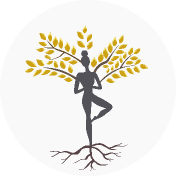
0


0
ART AND CULTURE
By Saswati Borthakur
6 November, 2017
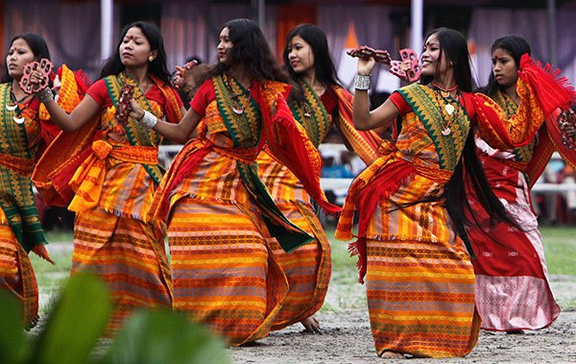
 Dancers doing the Bagurumba dance
Dancers doing the Bagurumba dance
India is home to so many cultures, sub-cultures, religions, regions, languages, dialects etc that it becomes a fascinating melting pot. Unfortunately, it also means that most of our fellow countrymen, too, are oblivious to such rich heritage. One of the communities that have been largely misunderstood from a media perspective is the Bodo Tribe of Assam.
Assam being my home state, I, too, was unaware of the cultural richness this community represented. Many of my fellow countrymen have pre-conceived notions about the Bodos. Is there any truth to it, let's find out.
The Bodo Tribe of Assam is believed to be one of the earliest settlers of Assam. They are the largest minority group in the state and they are mainly concentrated in and around the Brahmaputra Valley. The name 'Bodo' is believed to have originated from 'Bod', meaning 'Tibet'. They were ones who started rice cultivation and rearing of silkworms in the state.
When we think of Assam, generally, the imagery doesn't move beyond Bihu dance and the one-horned Rhino. But culturally, the Bodo tribe of Assam is very rich in terms of their language, literature, music, dance, attire etc.
The religious beliefs of this tribe have also undergone a significant change. They have now embraced Hinduism in many respects. They now practice what is known as Bathousim. The Siju plant has a special significance in their culture. The Bodo language is a form of Tibeto-Burmese language. The written script was Roman earlier but now they have transitioned to the Nagari script.
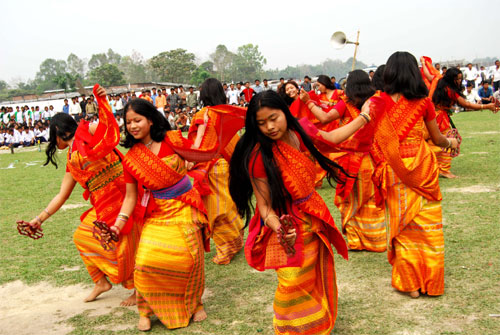 Bodo dancers
Bodo dancers
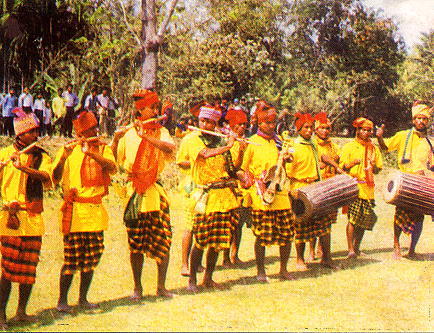 Musicians playing traditional tunes
Musicians playing traditional tunes
Dancers in their exquisite attires dancing the Bagarumba and Bardaichikhla is a sight to behold. The musical legacy is representative of their roots and culture. The traditional instruments that accompany their soul-stirring songs are Tharkha, Bingi, Rege, Kham, Siphung, Serja, Jotha, Jabsring etc.
 The traditional Bodo attire
The traditional Bodo attire
The Bodos of Assam have become quite the experts in weaving the most stunning fabrics. The women wear what is called 'dhokna'. It is kind of a wrap-around dress that covers the chest all the way down to the ankles. It is made of traditional silks like Eri and Muga.
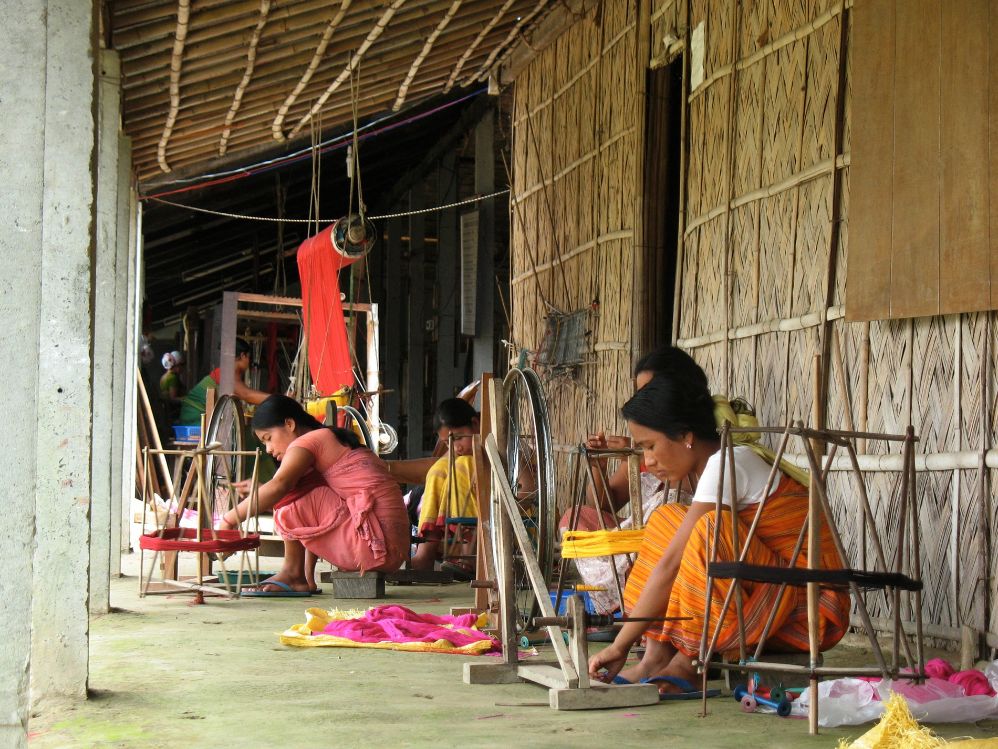 Bodo women engaged in the weaving process image courtesy: www.thealternative.in
Bodo women engaged in the weaving process image courtesy: www.thealternative.in
The 'Jwmgra' is the traditional scarf of the women, which was earlier used to cover the bosom. It is now being replaced by the more modern blouses. Gamsha(probably derived from the Assamese word 'Gamosa', which loosely translated is a hand-woven towel), is the attire of choice for the menfolk.
 The food celebrates the local produce image courtesy: NELive.in
The food celebrates the local produce image courtesy: NELive.in
The Bodos of Assam are primarily rice cultivators and hence rice holds special significance in their lives. Rice, sugar, milk etc are offerings of choice during their festivals like Baishagu and other religious rituals. They are also very fond of the fermented rice drink- Zu Mai. Oma Bedor, Narzi and Onla are their signature dishes.
Like every community that isn't fully understood, people tend to associate pre-conceived notions and certain generalised assumptions. But when we delve a little deeper, only then we realise their magnificent culture. They are waiting to embrace you only if you embrace them back.